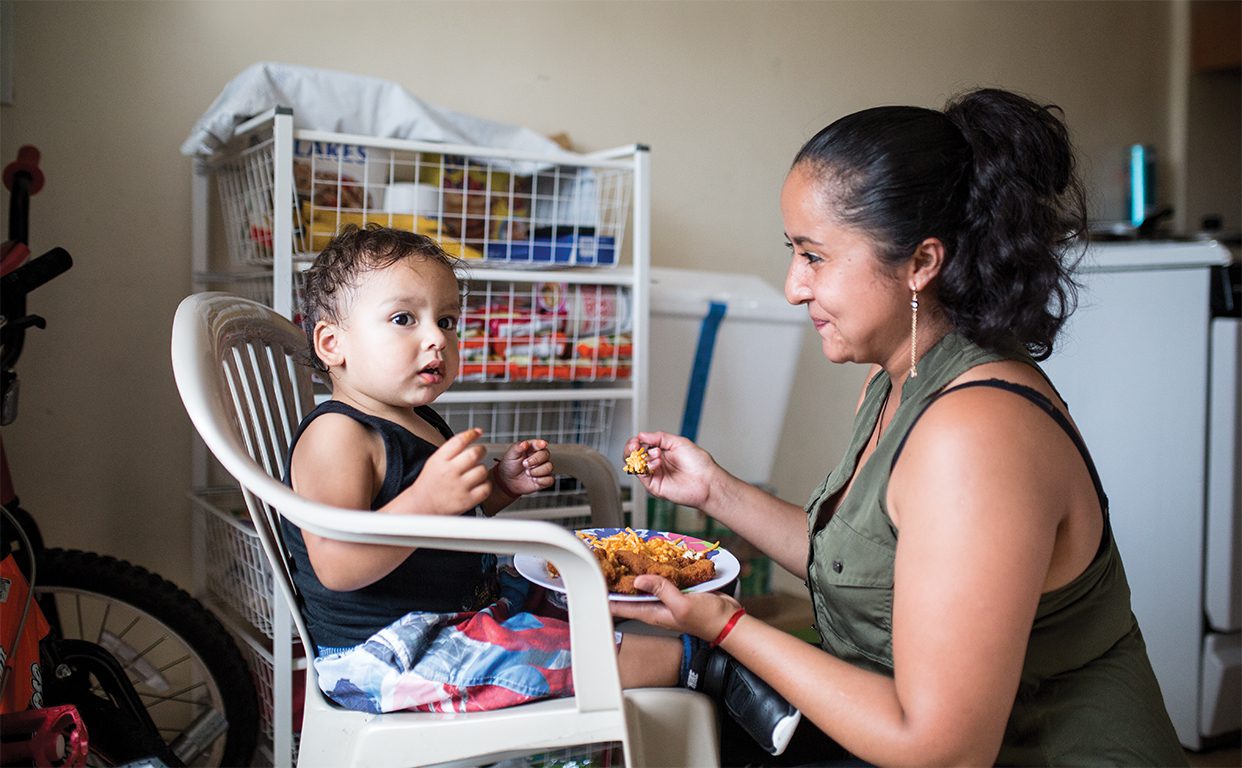By Marlysa D. Gamblin
Mother’s Day is one time when we stop and acknowledge mothers for their hard work to provide for their families. This responsibility is a lot for any mother, but especially mothers with limited support. Mothers in female-headed households arguably face some of the most trying scenarios and continue to fight to feed and clothe their children. What can we do to honor this hard work and tenacity?
Female-headed households are more than twice as likely to experience food-insecurity than other U.S. households. A recently published briefing paper from Bread for the World Institute, “Ending U.S. Hunger and Poverty By Focusing on Communities Where It’s Most Likely,” describes some of the hardships that single mothers face. Two main factors that hurt a woman’s ability to provide for her family are gender discrimination and racial discrimination. The majority of those working in the 10 lowest-paid jobs in the United States are women. They are also the majority of those in “tipped-based” jobs. A single mother with three children in a minimum wage job would need to work more than 130 hours a week just to make ends meet. There are only 168 hours in a week — and she must take care of her children and sleep. Tipped-based jobs can legally pay as low as $2.13 an hour. There are literally not enough hours in the week to enable many tipped-based workers to support themselves and their children.
Households headed by single mothers of color face the added stress of racial discrimination. Currently, white women are paid about 76 cents for every dollar that white men are paid. But women of color are paid only 55 cents to 60 cents for every dollar white men are paid. That difference means that a woman of color would need to work an additional eight to 10 months every year to take home the same paycheck as a white male—which, of course, is impossible. Each of us has the same number of hours, days, and weeks in a year.
Ending gender pay discrimination would lift almost 5 million low-income families, many with children, out of poverty. Ending racial discrimination would do the same for millions more.
To honor mothers for their hard work, too often done with little reward, the United States should eliminate gender and racial pay gaps, workforce segregation, and disparities such as those in access to health care, safe and affordable housing, credit, and employment benefits such as paid sick leave. That would truly make this year’s Mother’s Day something to celebrate.
Read more about policies that support women and female-headed households in fighting hunger and poverty.
Marlysa D. Gamblin is domestic policy advisor for policy and programs, specific populations at Bread for the World Institute.



